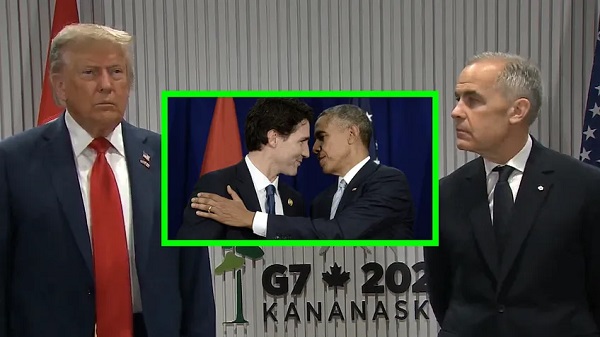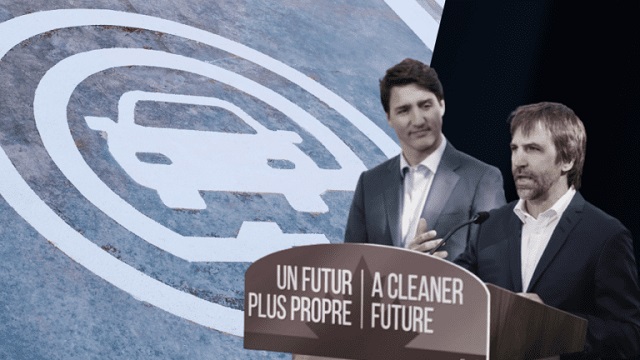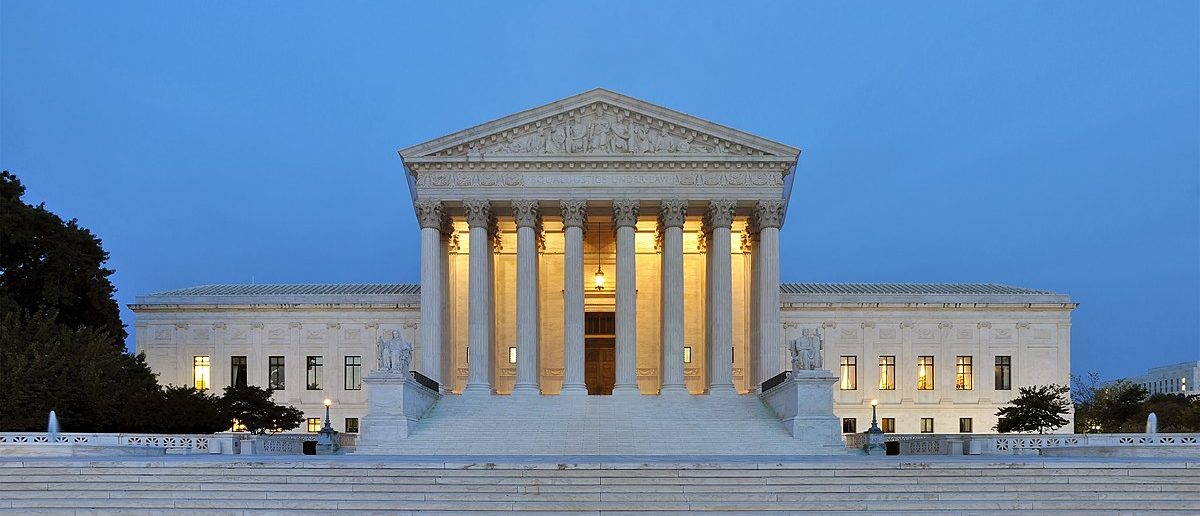Business
Trump makes impact on G7 before he makes his exit

Trump Rips Into Obama and Trudeau at G7 for a “Very Big Mistake” on Russia
At the G7 in Canada, President Trump didn’t just speak—he delivered a headline-making indictment.
Standing alongside Canada’s Prime Minister, he directly blasted Barack Obama and Justin Trudeau, accusing them of committing a “very big mistake” by booting Russia out of the G8. He warned that this move didn’t deter conflict—it unleashed it, and he insists it paved the way for the war in Ukraine.
Before the working sessions began, the two leaders fielded questions. The first topic: the ongoing trade negotiations between the U.S. and Canada. Trump didn’t hesitate to point out that the issue wasn’t personal—it was philosophical.
“It’s not so much holding up. I think we have different concepts,” Trump said. “I have a tariff concept, Mark [Carney] has a different concept, which is something that some people like.”
He made it clear that he prefers a more straightforward approach. “I’ve always been a tariff person. It’s simple, it’s easy, it’s precise and it just goes very quickly.”
Carney, he added, favors a more intricate framework—“also very good,” Trump said. The goal now, according to Trump, is to examine both strategies and find a path forward. “We’re going to look at both and we’re going to come out with something hopefully.”
When asked whether a deal could be finalized in a matter of days or weeks, Trump didn’t overpromise, but he left the door open. “It’s achievable but both parties have to agree.”
Then the conversation took an unexpected turn.
Standing next to Canada’s Prime Minister, whose predecessor helped lead that push, Trump argued that isolating Moscow may have backfired. “The G7 used to be the G8,” he said, pointing to the moment Russia was kicked out.
He didn’t hold back. “Barack Obama and a person named Trudeau didn’t want to have Russia in, and I would say that was a mistake because I think you wouldn’t have a war right now if you had Russia in.”
This wasn’t just a jab at past leaders. Trump was drawing a direct line from that decision to the war in Ukraine. According to him, expelling Russia took away any real chance at diplomacy before things spiraled.
“They threw Russia out, which I claimed was a very big mistake even though I wasn’t in politics then, I was loud about it.” For Trump, diplomacy doesn’t mean agreement—it means keeping adversaries close enough to negotiate.
“It was a mistake in that you spent so much time talking about Russia, but he’s no longer at the table. It makes life more complicated. You wouldn’t have had the war.”
Then he made it personal. Trump compared two timelines—one with him in office, and one without. “You wouldn’t have a war right now if Trump were president four years ago,” he said. “But it didn’t work out that way.”
Before reporters could even process Trump’s comments on Russia, he shifted gears again—this time turning to Iran.
Asked whether there had been any signs that Tehran wanted to step back from confrontation, Trump didn’t hesitate. “Yeah,” he said. “They’d like to talk.”
The admission was short but revealing. For the first time publicly, Trump confirmed that Iran had signaled interest in easing tensions. But he made it clear they may have waited too long.
“They should have done that before,” he said, referencing a missed 60-day negotiation window. “On the 61st day I said we don’t have a deal.”
Even so, he acknowledged that both sides remain under pressure. “They have to make a deal and it’s painful for both parties but I would say Iran is not winning this war.”
Then came the warning, delivered with unmistakable urgency. “They should talk and they should talk IMMEDIATELY before it’s too late.”
Eventually, the conversation turned back to domestic issues: specifically, immigration and crime.
He confirmed he’s directing ICE to focus its efforts on sanctuary cities, which he accused of protecting violent criminals for political purposes.
He pointed directly at major Democrat-led cities, saying the worst problems are concentrated in deep blue urban centers. “I look at New York, I look at Chicago. I mean you got a really bad governor in Chicago and a bad mayor, but the governor is probably the worst in the country, Pritzker.”
And he didn’t stop there. “I look at how that city has been overrun by criminals and New York and L.A., look at L.A. Those people weren’t from L.A. They weren’t from California most of those people. Many of those people.”
According to Trump, the crime surge isn’t just a local failure—it’s a direct consequence of what he called a border catastrophe under President Biden. “Biden allowed 21 million people to come into our country. Of that, vast numbers of those people were murderers, killers, people from gangs, people from jails. They emptied their jails into the U.S. Most of those people are in the cities.”
“All blue cities. All Democrat-run cities.”
He closed with a vow—one aimed squarely at the ballot box. Trump said he’ll do everything in his power to stop Democrats from using illegal immigration to influence elections.
“They think they’re going to use them to vote. It’s not going to happen.”
Just as the press corps seemed ready for more, Prime Minister Carney stepped in.
The momentum had clearly shifted toward Trump, and Carney recognized it. With a calm smile and hands slightly raised, he moved to wrap things up.
“If you don’t mind, I’m going to exercise my role, if you will, as the G7 Chair,” he said. “Since we have a few more minutes with the president and his team. And then we actually have to start the meeting to address these big issues, so…”
Trump didn’t object. He didn’t have to.
By then, the damage (or the impact) had already been done. He had steered the conversation, dropped one headline after another, and reshaped the narrative before the summit even began.
By the time Carney tried to regain control, it was already too late.
Wherever Trump goes, he doesn’t just attend the event—he becomes the event.
Thanks for reading! This post took time and care to put together, and we did our best to give this story the coverage it deserved.
If you like my work and want to support me and my team and help keep this page going strong, the most powerful thing you can do is sign up for the email list and become a paid subscriber.
Your monthly subscription goes further than you think. Thank you so much for your support.
This story was made possible with the help of Overton —I couldn’t have done it without him.
If you’d like to support his growing network, consider subscribing for the month or the year. Your support helps him expand his team and cover more stories like this one.
We both truly appreciate your support!
Business
Senator wants to torpedo Canada’s oil and gas industry

From the Fraser Institute
Recently, without much fanfare, Senator Rosa Galvez re-pitched a piece of legislation that died on the vine when former prime minister Justin Trudeau prorogued Parliament in January. Her “Climate-Aligned Finance Act” (CAFA), which would basically bring a form of BDS (Boycott, Divestment, and Sanctions) to Canada’s oil and gas sector, would much better be left in its current legislative oblivion.
CAFA would essentially treat Canada’s oil and gas sector like an enemy of the state—a state, in Senator Galvez’ view, where all values are subordinate to greenhouse gas emission control. Think I’m kidding? Per CAFA, alignment with national climate commitments means that everyone engaged in federal investment in “emission intensive activities [read, the entire oil and gas sector] must give precedence to that duty over all other duties and obligations of office, and, for that purpose, ensuring the entity is in alignment with climate commitments is deemed to be a superseding matter of public interest.”
In plain English, CAFA would require anyone involved in federal financing (or federally-regulated financing) of the oil and gas sector to divest their Canadian federal investments in the oil and gas sector. And the government would sanction those who argue against it.
There’s another disturbing component to CAFA—in short, it stacks investment decision-making boards. CAFA requires at least one board member of every federally-regulated financial institution to have “climate expertise.” How is “climate expertise” defined? CAFA says it includes people with experience in climate science, social science, Indgineuous “ways of knowing,” and people who have “acute lived experience related to the physical or economic damages of climate change.” (Stacking advisory boards like this, by the way, is a great way to build public distrust in governmental advisory boards, which, in our post-COVID world, is probably not all that high. Might want to rethink this, senator.)
Clearly, Senator Galvez’ CAFA is draconian public policy dressed up in drab finance-speak camouflage. But here’s what it would do. By making federal investment off-limits to oil and gas companies, it would quickly put negative pressure on investment from both national and international investors, effectively starving the sector for capital. After all, if a company’s activities are anathema to its own federal regulators or investment organs, and are statutorily prohibited from even verbally defending such investments, who in their right minds would want to invest?
And that is the BDS of CAFA. In so many words, it calls on the Canadian federal government to boycott, divest from, and sanction Canada’s oil and gas sector—which powers our country, produces a huge share of our exports, and employs people from coast to coast. Senator Galvez would like to see her Climate-Aligned Finance Act (CAFA) resurrected by the Carney government, whose energy policy to-date has been less than crystal clear. But for the sake of Canadians, it should stay dead.
Automotive
Opposition Conservatives fail in attempt to “Pull the Plug” on Carney’s Electric Vehicle Mandate

From Conservative Party Communications
After a Lost Liberal Decade of rising costs and slow growth, Mark Carney wants you to think his government has moved on from Justin Trudeau’s failed policies.
Unfortunately for Canadians, Carney has no interest in scrapping one of his predecessor’s most reckless and costly ideas: a zero-emissions vehicle (ZEV) mandate starting next year that will ultimately ban Canadians from buying gas-powered cars by 2035.
As the required percentage of ZEV sales increases each year, the government wants to force manufacturers and importers to buy costly credits of up to $20,000 for every EV they are short of the Liberals’ quota – a huge expense that will ultimately be passed on to, and paid by Canadian consumers.
That’s why Conservatives have introduced a motion to end this harmful scheme, ensuring Canadians can continue to buy the kind of car they need at a price they can afford.
EVs are great for many families, who should always be free to purchase the vehicle of their choice. But for many Canadians – who live in cold environments or travel long distances – they can be practically useless, especially without the infrastructure to power them.
One government report estimated that changes to Canadian infrastructure required to support a transition to ZEVs could cost up to $300 billion by 2040. On top of the costs already imposed on manufacturers and buyers, this policy will require billions in new tax dollars and government debt.
No wonder one 2024 survey found two thirds of Canadians find the 2035 target is unrealistic.
As unjust tariffs threaten an automotive sector which contributes billions to our GDP, the Liberals continue to put their elitist, top-down ideology ahead of the livelihoods of hundreds of thousands of proud Canadian workers.
While Carney talks about change, Conservatives are here to deliver. That’s why we’re fighting to repeal the ZEV mandate, scrap the industrial carbon tax and cancel Liberal fuel standards. We trust Canadians – not Ottawa’s Liberal elite – to make the best decisions for themselves and their families.
It’s time to put Canadians back in the driver’s seat.
-

 Alberta2 days ago
Alberta2 days agoCentral Alberta MP resigns to give Conservative leader Pierre Poilievre a chance to regain a seat in Parliament
-

 Alberta2 days ago
Alberta2 days agoCalls for a new pipeline to the coast are only getting louder
-

 Daily Caller15 hours ago
Daily Caller15 hours agoUnanimous Supreme Court Ruling Inspires Hope For Future Energy Project Permitting
-

 Alberta1 day ago
Alberta1 day agoUnified message for Ottawa: Premier Danielle Smith and Premier Scott Moe call for change to federal policies
-

 Alberta2 days ago
Alberta2 days agoAlberta pro-life group says health officials admit many babies are left to die after failed abortions
-

 Daily Caller2 days ago
Daily Caller2 days ago‘Not Held Hostage Anymore’: Economist Explains How America Benefits If Trump Gets Oil And Gas Expansion
-

 Censorship Industrial Complex1 day ago
Censorship Industrial Complex1 day agoJordan Peterson reveals DEI ‘expert’ serving as his ‘re-education coach’ for opposing LGBT agenda
-

 Business2 days ago
Business2 days agoRhetoric—not evidence—continues to dominate climate debate and policy








